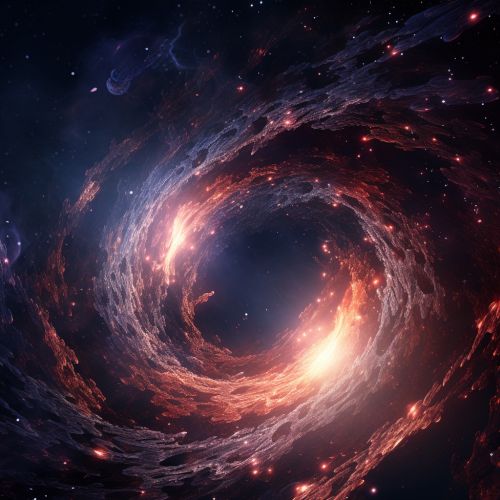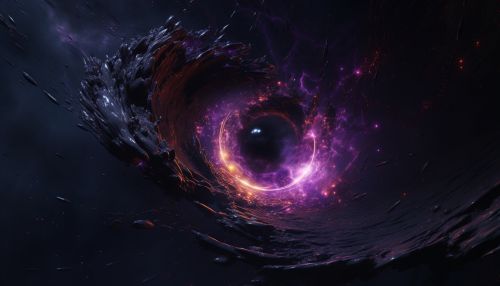Black Hole Information Paradox
Introduction
The Black Hole Information Paradox is a puzzle resulting from the combination of quantum mechanics and general relativity. Calculations suggest that physical information could permanently disappear in a black hole, allowing many physical states to devolve into the same state. This is controversial because it violates a core precept of modern physics—that in principle, the value of a wave function of a physical system at one point in time should determine its value at any other time.


Quantum Mechanics and General Relativity
The paradox is formulated using the principles of quantum mechanics, the theory that provides our best description of the microscopic world, and general relativity, our best theory of gravity and the large-scale structure of the universe. The paradox arises because these two theories, when applied together, lead to a contradiction.
The Paradox
The paradox's name refers to the apparent loss of information in a black hole, which seems to occur when matter falls into a black hole. According to the rules of quantum mechanics, this information should not be lost. However, the theory of general relativity predicts that it is lost, leading to the paradox.
Event Horizon and Singularity
The event horizon of a black hole is the boundary beyond which nothing can escape from within it. The singularity is the center of the black hole, where the gravitational field is infinite. The information paradox is concerned with what happens to information about the state of matter as it crosses the event horizon and approaches the singularity.
Hawking Radiation
In the 1970s, physicist Stephen Hawking used quantum mechanics to predict that black holes are not completely black but emit small amounts of thermal radiation. This is now known as Hawking Radiation. He also argued that the radiation could carry no information about the matter inside the black hole, and as the black hole loses mass, it could eventually disappear, erasing the information forever.
Information Loss Paradox
The information loss paradox refers to the problem of explaining how information about matter that has fallen into a black hole can be disseminated back into the universe. This is a problem because if the information were lost, it would violate the principle of quantum mechanics that information is never lost.
Proposed Solutions
There have been several proposed solutions to the black hole information paradox. These include the suggestion that black holes could create a copy of all the information they swallow and emit it as they evaporate, the idea that the information is stored in a two-dimensional hologram at the event horizon, and the proposal that black holes could be gateways to other universes.
Conclusion
The black hole information paradox is one of the most important unresolved problems in theoretical physics. It is a problem that arises from our current understanding of quantum mechanics and general relativity, and its resolution is expected to lead to a deeper understanding of these theories and possibly to a theory of quantum gravity.
